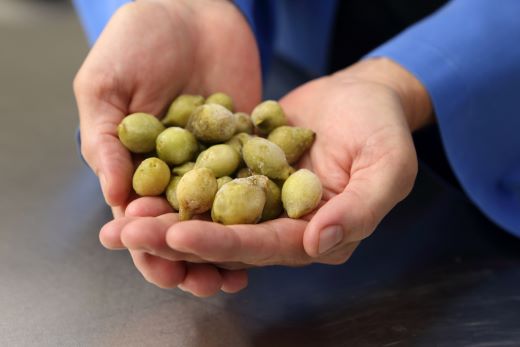Exotic pets are wild animals such as snakes, lizards, birds, and ornamental fish, as opposed to common domesticated pets such as dogs and cats.
Millions of wild animals are being captured from their habitats or born into captivity, to be sold. Whether traded legally or illegally, keeping wild animals as pets is cruel. Global research into the exotic pet trade reveals that nearly one third of all wild animals die during transportation.
With Australian household pet ownership among the highest in the world, the most common exotic pets were found to be freshwater fish, exotic birds and small mammals.
However, polling commissioned by World Animal Protection reveals more than half of Australian exotic pet owners didn’t realise their pet is exotic.
Simone Clarke, Executive Director ANZ for World Animal Protection said:
“Animals suffer at every step of the journey destined to people’s homes: from capture to handling, transport, holding, breeding, sale and the lifetime of captivity in the home.
“Most people buy exotic pets because they love animals – but any wild animal in the exotic pet trade experiences extreme suffering.
“Once they are in people’s homes, there is no realistic way to replicate the space and freedom these animals would have in the wild.
YouGov Galaxy polling of Australian exotic pet owners commissioned in December 2018 revealed alarming insights into the lack of understanding exotic pet owners had of the animals in their care;
· 26% of exotic pet owners did no research before buying their pet
· More than three quarters of exotic pet owners think that it’s true or true in some circumstances that wild animals kept in captivity as pets experience stress
· 13% admitted that it’s mostly or completely false to say that the needs of their exotic pets can be fulfilled by their owners
World Animal Protection is urging people to not buy, own or breed a wild animal as a pet.
“Whether native or introduced, wild animals are not pets, they belong in the wild. No matter how good your intentions, a life in captivity is a life of suffering for wild animals,” Simone Clarke said.
“If you already have an exotic pet, do your research and learn how to give it the best life possible and make a commitment not to replace it with another wild animal.
When given facts about the cruelty involved in the exotic pet trade and the suffering wild animals endure in captivity, more than half of exotic pet owners indicated they were somewhat or much less likely to buy another exotic pet in the future.
“A life in captivity is a world away from a life in the wild. With more education, we can end the demand for this cruel trade,” Simone Clarke added.
-END-






